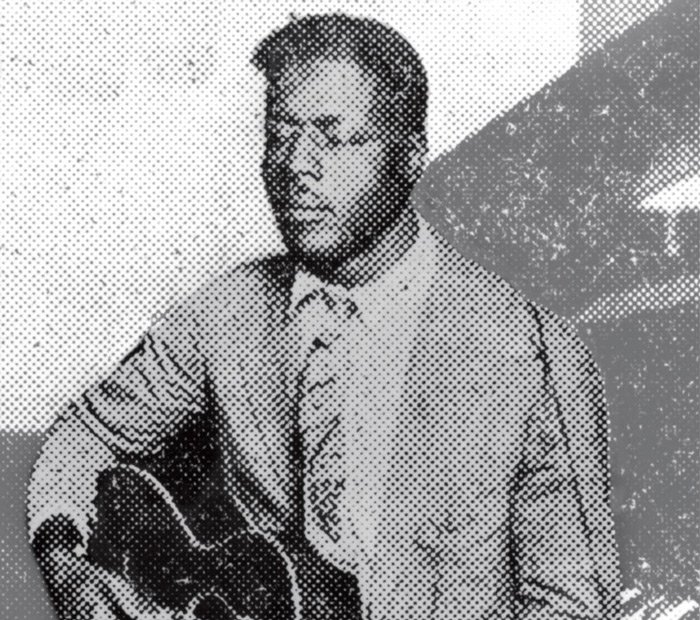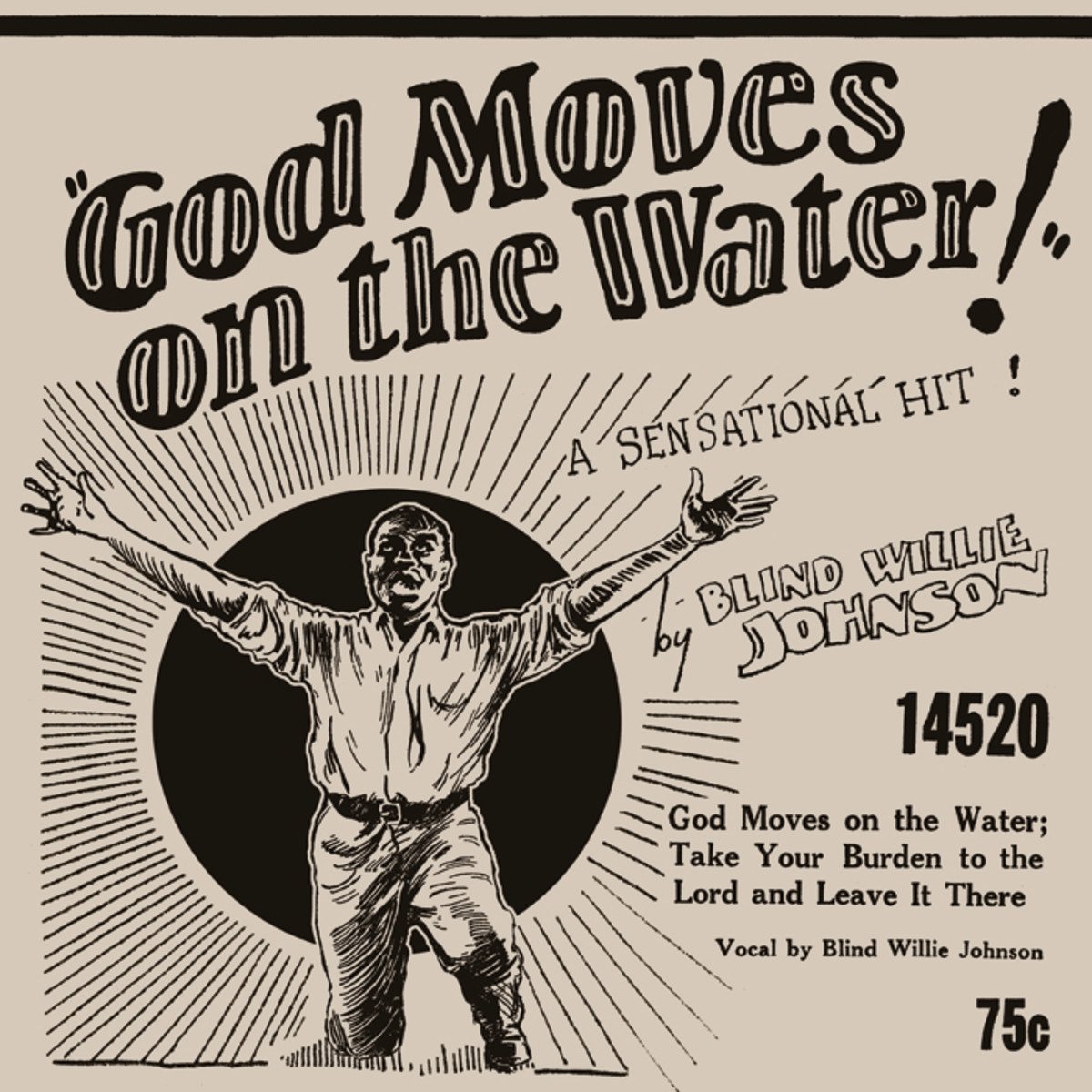THE SOUL OF A MAN
MARLIN, TX — 1927 — The guitar growls, moans, weeps. Sliding through a dark universe, a human cry soars, then plunges into a gutter of woe. Without words, the soft tenor laments all of life, death suffering. Before the song is finished, human anguish is distilled into the blues.
The title comes from an old hymn, but the song was grown fresh from the earth. "Dark was the Night/Cold Was the Ground." Lyrics suggests the crucifixion.
Dark was the night
Cold was the ground
On which our Lord was laid.
Hear "Dark Was the Night" in I Hear America Singing.
The singer fancied himself a preacher, and most of his songs were spiritual. "Jesus Make My Dying Bed." "John the Revelator." "God Moves on the Water." But we have all spent dark nights, all felt the cold, cold ground. And Blind Willie Johnson knew our sorrows better than any other bluesman.
Though his songs have been covered by Bob Dylan, Bruce Springsteen, Eric Clapton, Led Zeppelin, The White Stripes and others, little is known about Blind Willie Johnson. And what is known keeps changing. He was born in Pendleton, Texas. No, in Temple, Texas. Sorry, make that Independence, Texas. In 1902. No, in 1897. Died in 1949. Ahem -- 1945. Of pneumonia. Or malarial fever. But listening to "Dark was the Night" you just know he died of sorrow.
Overshadowed by that other Johnson of the blues -- Robert Johnson of "Crossroads" fame -- Blind Willie was one of a half-dozen bluesmen whose nickname was his fate. Blind Willie McTell. Blind Blake. Blind Lemon Jefferson. All had a personal darkness that flooded their music. But Blind Willie Johnson suffered the most.
His father made the boy his first guitar-- out of a cigar box. Young Willie began roaming the house playing and singing. His mother had recently died, inspiring his most famous song, "Motherless Children." You've heard it. . . Or felt it.
Motherless children have a hard time when the mother is dead...
A harder time still when the step-mother is vengeful. To get even with her quarrelsome husband, Willie's step-mother threw lye water in the boy's face. Blinded at age seven, he sought solace in the spirit. By his teens, he was playing gospel on the streets of Marlin, Texas, with a tin cup wired to his guitar. Folks in Marlin remembered him as a "gentle, dignified man."
His breakthrough came in 1927 when, with "race records" selling well, Columbia sent an agent south. Discovered on the street , Johnson recorded thirty songs that sold enough to earn a modest living. But the Depression cut the bottom out of the blues market. Blind Willie Johnson never recorded another song.
In 1931, he moved to Beaumont, Texas, broke up with his wife, sang on the street again, remarried, and lived the rest of his life in the small oil town. He called himself the Reverend W.J. Johnson. He died in 1945 at the age of 48, his death hastened by a fire that gutted his house. Exposed to the open air, he caught whatever it was that killed him. According to his second wife, he was turned away at the hospital and died in the ruins of his home. He had once sold more records in a year than Bessie Smith. He died forgotten.
A guitar growls, moans, weeps. . .
The revival came in the 1960s when the Reverend Gary Davis shared Johnson's songs with young folkies. First Dylan, then Peter, Paul, and Mary, then Clapton. "Dark Was the Night" earned the supreme tribute in 1977 when it was chosen to represent humanity. Voyager I, the first spacecraft to leave the solar system, carried a gold record -- Carl Sagan called it a bottle launched "into the cosmic ocean." On the record were sounds of waves, thunder, insects, and 27 songs ranging from Beethoven to Chuck Berry to the moaning of "Dark Was the Night."
In the 1990s, when the Columbia recordings were re-released, blues fans discovered the man behind those old folkie songs. Though his voice is raw -- an acquired taste -- many marveled at the pure tones of Johnson's slide guitar, played with a pen knife. Eric Clapton called Johnson's "the finest slide guitar playing you'll ever hear." But it was the soul that grabbed Ry Cooder, who covered "Dark was the Night" on his first album.
"Beyond being a guitar player, I think the guy is one of these interplanetary world musicians," Cooder said, "where the world is sound and everything is resonating. He's one of those guys. There are only a few. Blind Willie Johnson is in the ether somewhere."
And somewhere beyond the solar system, on a gold record, a guitar growls, moans... Then the voice enters, wordlessly answering the question Johnson posed in another song.
I want somebody to tell me
Answer if you can
I want somebody to tell me
Tell me what is the soul of a man...













